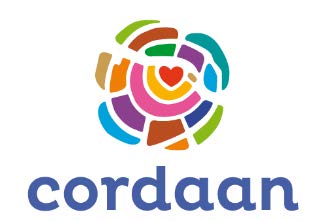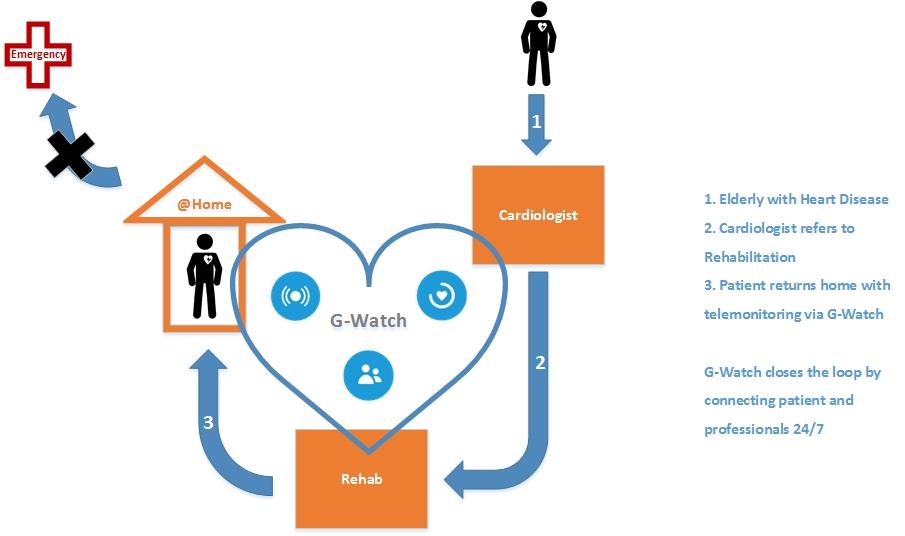G-Watch
Healthcare in Europe is undergoing radical changes due to an aging population. In the Netherlands 748.748 people were aged ≥80 in 2016 compared to 587.016 in 2006. (Ref 1) Because of the expected grey tsunami (generation of post-WWII baby boomers are reaching their seventies and live longer compared to previous generations), the number of people older than 80 is expected to rise exponentially in the future. Many elderly patients will need care. To provide high quality and efficient care for these patients, a paradigm shift needs to take place in the next years in healthcare in the Netherlands; elderly care should move from reactive care towards pro-active monitoring, and from hospital care to care at home. Patients will be invited to be more engaged and become more empowered. (Ref 2)Technology, as used in G-Watch, can facilitate this paradigm shift.
G-Watch is the first tailored rehabilitation program for elderly with Heart Disease. Heart disease (HD; including Heart Failure, Coronary Heart Disease and Atrial Fibrillation) is a major contributor to chronic disease burden for elderly patients, being present in 10% of the persons aged over 75 years in the general population. Prevalence of Heart Failure for example rises to 25% of elderly patients in the frail nursing home population. (Ref 3) Tailored rehabilitation programs for elderly with HD are currently lacking. Elderly patients are too frail to participate in current programs for adults with HD prescribed by hospital doctors. Normally the care for these patients is very fragmented. On one hand there is no coordination between doctors in the hospital setting, on the other hand there is no continuum after the patient leaves the hospital. With G-Watch, care for elderly with HD is more integrated and tailored to the specific patient group.
The aim of G-Watch is to reduce Emergency Department-presentations and hospital admissions and increase Quality of Life for elderly with Heart Disease by enabling them to self-manage via a telerehabilitation program that connects them 24/7 to cardiac and elderly experts. Patients are able to stay longer in their own homes, potential healthcare issues are earlier detected and the elderly patients and their families are less worried. These benefits are achieved through a.o. 24h access to video communication with the G-Watch team.
With these interventions, the patients self-control and self-management skills are increased (25% expected), quality of life increases and it leads to a decrease of hospital admissions with 30-40%. (Ref 4) In frail elderly the focus is on maintaining the health status rather than improving the health status. Other goals of G-Watch are to streamline patient experience, cover the continuum of care, integrate care services and promote collaboration in outcome measurement.
G-Watch is a collaboration between specialist center “Cardiologie Centra Nederland”, care provider organization “Cordaan” and supplier “FocusCura” to coordinate non-fragmented care.
The concept is widely implementable to other regions, countries and to other medical conditions.
Ref 1 www.cbs.nl Central Bureau for Statistics accessed February 2017
Ref 2 Westendorp, R.G.J. When vitality meets longevity, new strategies for health in later life. Wellbeing. 4:3:13:1-15.
Ref 3 Barents, M. Prevalence and misdiagnosis of chronic heart failure in nursing home residents; the role of B-type natriuretic peptides. Neth Heart J 2008; 16 (4):123-8.
Ref 4 Frederix, I. Effect of comprehensive cardiac telerehabilitation on one-year cardiovascular rehospitalization rate, medical costs and quality of life: A cost-effectiveness analysis. Eur J Preventive Cardiology. 2016; 23 (7): 674-682




